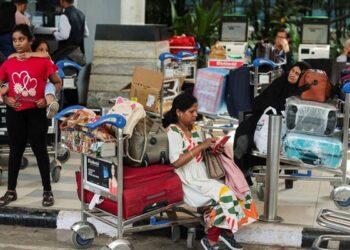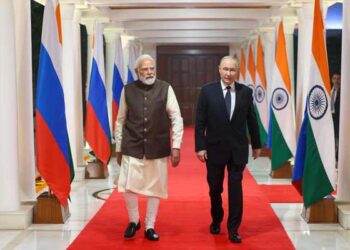Select Language:
Two sisters residing in India’s Kerala state are now stateless after they couldn’t produce proof of having waived their Pakistani citizenship.
According to The News, citing BBC, the sisters told a court they handed over their Pakistani passports to the High Commission in New Delhi back in 2017. However, they claim that since they were under 21 at the time — Pakistan’s minimum age to officially renounce citizenship — they weren’t issued renunciation certificates.
They approached the High Commission again after turning 21, but it still declined to issue the certificates without providing any explanation, stated their mother, Rasheeda Bano (her daughters chose not to speak to the media). She and her son have since become Indian citizens, but her daughters have been caught in a legal limbo for years.
This situation has seriously impacted their lives, especially since they cannot even apply for new passports.
The BBC reached out to the Pakistani High Commission in India but hasn’t received a response.
India and Pakistan share a tense relationship—often marked by hostility, such as the four-day military conflict earlier this May. Despite that, migration between the two countries remains common, especially among families divided during the 1947 partition when India and Pakistan were created.
Over recent decades, immigration procedures have grown more stringent, with increased scrutiny of documents. As of December 2021, more than 7,000 Pakistani nationals had pending citizenship applications with the government, according to parliamentary data.
Bano explained that when the Pakistani High Commission refused to provide the renunciation certificate, she asked them to return her daughters’ passports, but that was not done.
In 2018, the sisters obtained a certificate from the High Commission stating they’d submitted their passports and that Pakistan had no objection if they acquired Indian citizenship. Still, Indian authorities have refused to recognize this as proof of formal renunciation, forcing the sisters to seek legal help.
Last year, a Kerala High Court single-judge panel ruled in their favor, stating it was obvious they couldn’t produce the necessary documents. The court ordered the Indian government to grant them citizenship, describing the task as impossible for the petitioners. However, the federal home ministry appealed, and on August 23 of this year, a two-judge bench reversed the earlier decision.
The court explained that for someone to be recognized as an Indian citizen, the Indian government alone must acknowledge them, free from conflicting claims from another country. The judiciary emphasized that the renunciation process is essential to establish clear legal status. The sisters still have the right to appeal this decision in a higher court.
Under Pakistani law, individuals under 21 can’t renounce their citizenship on their own; instead, their father’s application can include their names. Their father, Mohammed Maroof, was born in Kerala but was adopted by his grandmother after becoming orphaned at age nine. When she migrated to Pakistan in 1977, she took him along.
Bano added that her parents were also Indian by origin but got stuck in Pakistan during a 1971 visit after borders closed because of the war.
Unable to return, they chose to apply for Pakistani citizenship, and Bano was born a few years later. She and her husband, Maroof, moved to India in 2008 on long-term visas seeking closer ties to their roots. Maroof struggled to adjust and soon returned to Pakistan.
Bano and her son, who was over 21 at that time, were eventually granted Indian citizenship. She shared that depicting their Pakistani identity often led to stigma, but it was something to hold onto—something now lost for her daughters.
Simple tasks like getting a mobile connection or enrolling children in school became challenging. Eventually, Indian authorities allowed the sisters to obtain Aadhaar cards—an identity document—but not citizenship proof, leaving them rights-deprived.
The lack of passports has also caused hardship. One sister’s husband had to leave his job in the Gulf and travel to India, as she couldn’t visit him. Meanwhile, her other daughter has a child needing medical treatment abroad but cannot leave India.
Their lawyer, M Sasindran, noted, “The sisters didn’t receive the certificate in 2017 because they were minors. Now that they are adults, they cannot return to Pakistan because they surrendered their passports. So how will they obtain the certificate?”
He added, “They are now stuck.”







